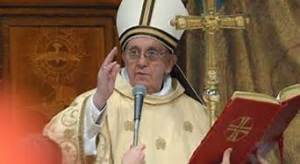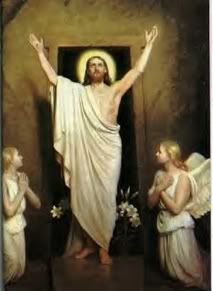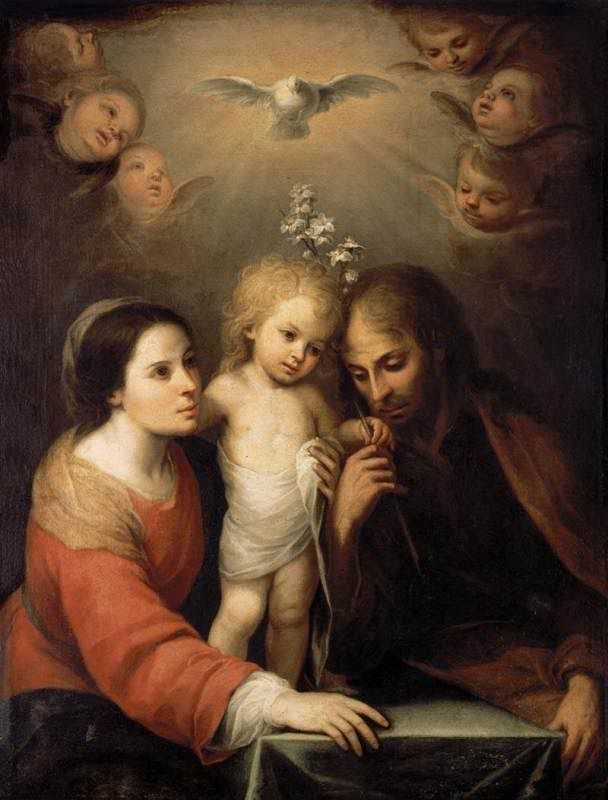Multiple media reports have given rise to the misconception that Pope Francis is polling Catholics for their views on Church teaching and practices.
BY PETER JESSERER SMITH Staff Writer
WASHINGTON — Pope Francis wants to know about the state of marriage and the family in the Church, before the bishops meet in Rome for an extraordinary synod next year. However, the lay faithful should not expect to be receiving a survey on their views from the Vatican anytime soon.
For one thing, the Vatican’s survey is being handled at the diocesan level, and the aim is to collect raw data, not opinions on Church doctrine or discipline, in advance of the 2014 synod. The data will help inform the bishops as they develop pastoral solutions for the challenges faced by modern families.
“Each bishop determines what is the most useful and reasonable manner of consultation to assist him in preparing his report for the Vatican,” said Don Clemmer, assistant director of media relations at the U.S. Conference of Catholic Bishops (USCCB).
Clemmer said once a diocese completes its report, the data will be sent back to the USCCB and then forwarded on to the Vatican.
It is too early to say how each of the U.S. dioceses will handle the questionnaire. The Archdiocese of Denver’s communications office informed the Register that the archdiocese is studying how best to approach the questionnaire and will be forming a plan over the next few weeks. In the Diocese of Fort Wayne-South Bend, Ind., according to the communications office, Bishop Kevin Rhoades has not yet had an opportunity to meet with his cabinet to discuss how they will gather the survey data.
The Diocese of Harrisburg, Pa., said that it will be distributing the survey to all priests and deacons in its 15 counties and that it may include those involved in parish marriage ministries as well.
“It will be a big job to read and compile all the surveys in the short time allotted, but I feel that it will be worth it to share this information about marriage in central Pennsylvania with the larger Church,” said Victoria Laskowski, the diocese’s director of marriage and family ministries.
The responses from all the dioceses have to be returned to the Vatican by the end of January 2014.
2014 Synod

emblem of the Papacy: Triple tiara and keys Français : emblème pontifical Italiano: emblema del Papato Português: Emblema papal. (Photo credit: Wikipedia)
The synod is set for Oct. 5-19 and will focus on “The Pastoral Challenges of the Family in the Context of Evangelization.” The bishops and Pope Francis will discuss pastoral responses to the problems of divorce and same-sex “marriage,” as well as other challenges to the health of families.
The 39 questions in the Vatican survey form part of a preparatory document that addresses such topics as “Pastoral Care in Certain Difficult Marital Situations,” the “Union of Persons of the Same Sex,” the “Education of Children in Irregular Marriages,” “Openness of the Married Couple to Life” and the “Relationship Between the Family and the Person.”
“This is huge, to have an extraordinary synod focused specifically on the family,” said Bill May, president of Catholics for the Common Good, a lay apostolate focused on evangelizing the culture.
May is the author of a recent book called Getting the Marriage Conversation Right, and his organization has been focused on presenting the Church’s teachings on marriage and family in a compelling way.
“The questionnaire reflects an interest in trying to understand the problems of the family more deeply as they try to prepare and address it,” he said.
Misunderstandings
The Vatican’s worldwide survey, however, has been misunderstood by others and inaccurately described in a number of media outlets as an opinion survey or a poll of the views lay Catholics may have on marriage, family and sexuality.
Vatican officials involved with preparing for the synod have made clear that the preparatory document and questionnaire are geared toward finding pastoral solutions for the modern challenges to the family, not altering Church teaching.
Cardinal Péter Erdő, primate of Hungary, said at a Nov. 5 press conference that the aim of the Vatican survey is to obtain “concrete and real data” from dioceses to inform the synod’s discussions.
“The document contains, as well as a general presentation on the matter, various essential biblical and magisterial quotations on the theme as well as a questionnaire on the main challenges regarding the family,” Cardinal Erdő said.
One lay Catholic organization, however, has taken upon itself to publish an online version of the survey. Catholics in Alliance for the Common Good — a separate and distinct organization unrelated to Catholics for the Common Good — has posted a truncated version of the Vatican questionnaire, under a heading that reads, “Communicating the Sense of the Faithful in the United States to Pope Francis.” The organization says it will send the responses to the USCCB “and to the appropriate officials in the Vatican, including the Holy Father himself.”
Catholics in Alliance for the Common Good has been criticized by some Catholic observers, who note that it is a politically partisan group that has acted to undermine Church teachings on abortion.
During the 2008 election campaign, then-Archbishop Charles Chaput of Denver publicly criticized the organization, commenting that “… the work of Democratic-friendly groups like Catholics United and Catholics in Alliance for the Common Good have done a disservice to the Church, confused the natural priorities of Catholic social teaching, undermined the progress pro-lifers have made and provided an excuse for some Catholics to abandon the abortion issue, instead of fighting within their parties and at the ballot box to protect the unborn.”
Only a Preparatory Document
However, it appears unlikely that anything other than the diocesan responses to the official Vatican survey will be considered.
Vatican spokesman Father Federico Lombardi explained that the Vatican questionnaire is “only a document sent to bishops’ conferences throughout the world” to help prepare for the extraordinary synod.
The USCCB Office of Communications also said it could not comment about third-party surveys — only on the official survey being sent to the bishops.
Pope Francis’ call for an extraordinary synod of bishops in 2014 was announced by the Vatican in October.
The synod’s discussions on the family are expected to be taken up again in 2015, at the regular worldwide synod of bishops, which falls on the 50th anniversary of the restoration of the synodal system by Pope Paul VI.
Source: Catholic News Register
.







